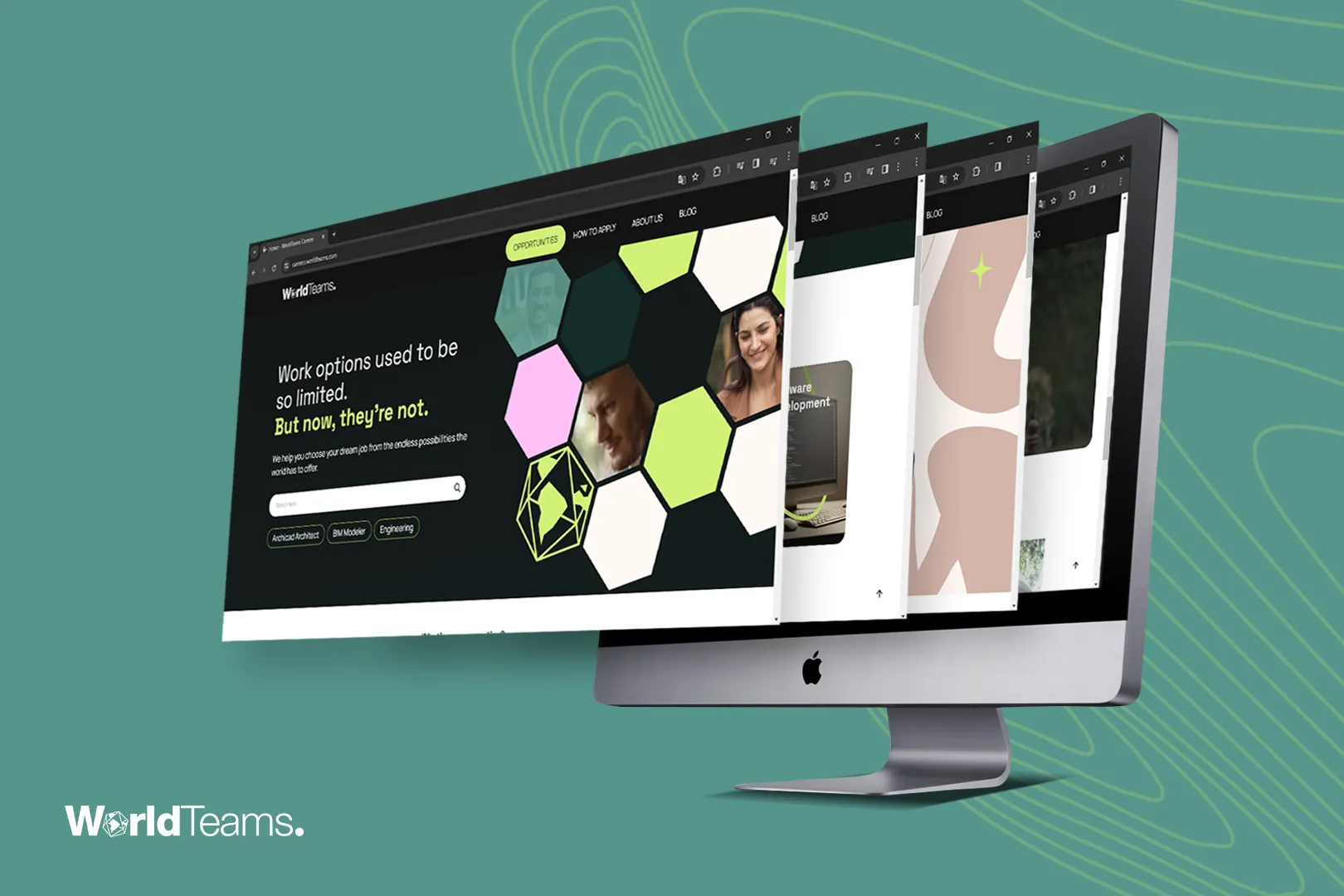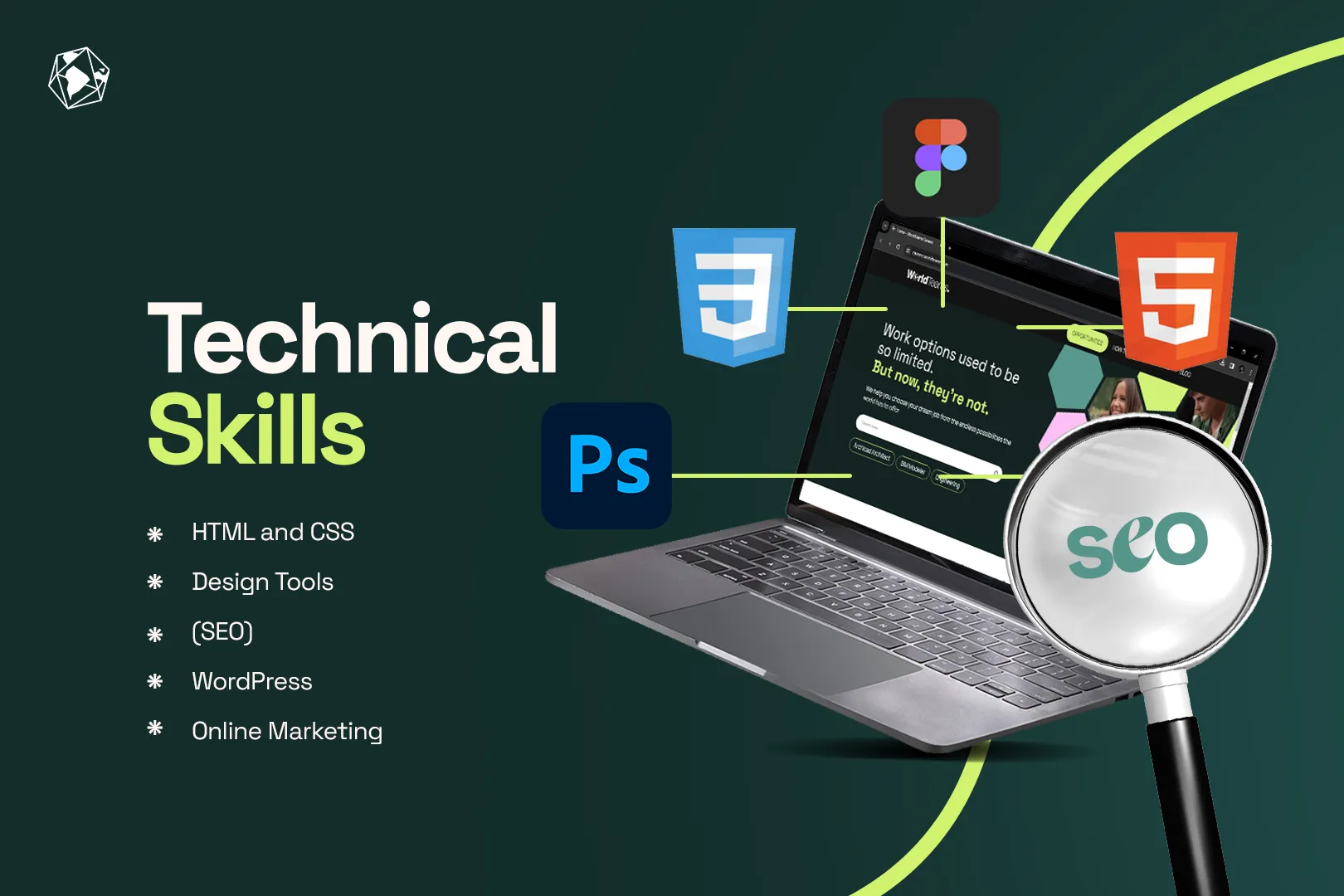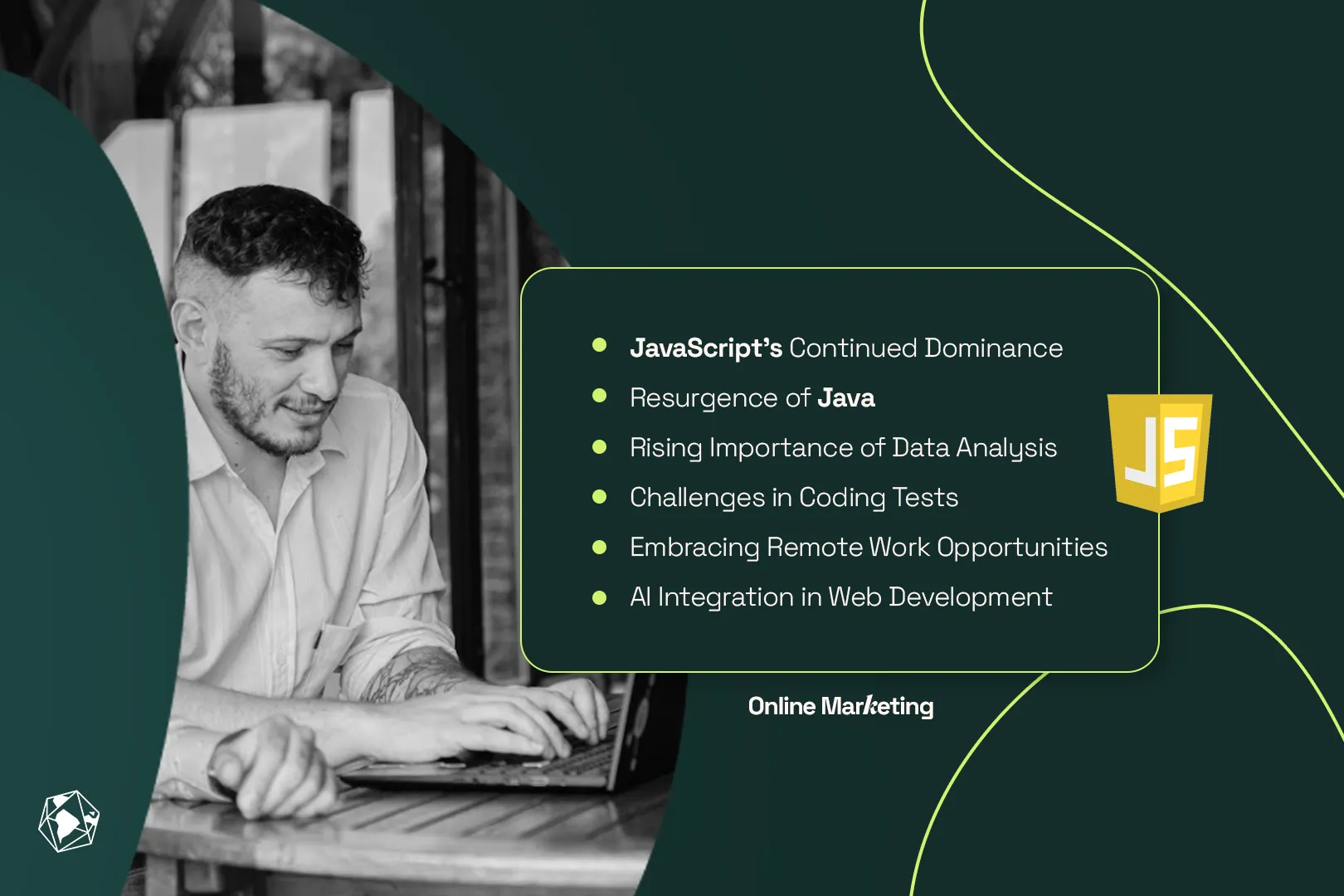Web Design Trends: Must-Have Skills for Freelancers
5 min read

In the rapidly evolving digital landscape, freelancing in web design and development has emerged as a lucrative career choice. Navigating this dynamic field requires a diverse skill set encompassing technical expertise and soft skills.
In this guide, we’ll delve into the essential elements that make a web design and development freelancer successful, focusing on trends, key technical skills, essential tools, and indispensable soft skills.
Technical Skills
HTML and CSS
Mastery of HTML and CSS serves as the foundation for any web design and development professional. These languages enable you to structure and style web content effectively. Keep your skills updated with the latest HTML5 and CSS3 features to stay ahead in the competitive freelance market.
Design Tools: Figma and Photoshop
Proficiency in design tools like Figma and Photoshop is essential for creating visually appealing and user-friendly websites. Figma facilitates collaborative design, while Photoshop remains a graphic design and image editing powerhouse. Integrating these tools into your workflow enhances your efficiency and the quality of your deliverables.
Basic Search Engine Optimization (SEO)
Any freelancer must understand the basics of Search Engine Optimization (SEO). Implementing SEO principles in your projects ensures that websites are visually appealing and optimized for search engines. Familiarize yourself with keyword research, meta tags, and other SEO fundamentals to enhance the discoverability of your clients’ websites.
WordPress Advanced Knowledge
Any freelancer must understand the basics of Search Engine Optimization (SEO). Implementing SEO principles in your projects ensures that websites are visually appealing and optimized for search engines. Familiarize yourself with keyword research, meta tags, and other SEO fundamentals to enhance the discoverability of your clients’ websites.
1. Basic Hosting
A successful freelancer must grasp the fundamentals of web hosting. Learn about server configurations, domain management, and the various hosting options available. This knowledge ensures seamless deployment of websites and troubleshooting hosting-related issues.
2. WordPress Platform
WordPress is a cornerstone in web design and development. Acquire an in-depth understanding of the WordPress platform, including its architecture, functionalities, and updates. Stay abreast of the latest WordPress trends and best practices.
3. Working with Gutenberg
As the default editor for WordPress, Gutenberg requires specific expertise. Mastering this block-based editor streamlines content creation, allowing you to deliver efficient and visually engaging websites.
4. Themes, Plugins, Pages, Posts, Custom Post Types, Taxonomies
Explore the intricacies of WordPress themes and plugins. Understand how to customize themes, create unique page layouts, manage posts, and implement custom post types and taxonomies. This advanced knowledge ensures you can cater to diverse client needs and preferences.

Online Marketing
Freelancers need a basic understanding of online marketing to stand out in the competitive freelance landscape. Familiarize yourself with content marketing, social media promotion, and other digital marketing strategies. This knowledge enhances your ability to market your services and attract potential clients.
Beyond technical expertise, significant added value in web design and development freelancing lies in mastering soft skills. While technical proficiency ensures the creation of functional and visually appealing websites, soft skills elevate a freelancer from proficient to exceptional. Communication, critical-thinking abilities, a learning mindset, empathy, and attention to detail form the backbone of a freelancer’s interpersonal and problem-solving capabilities. How exactly? Let’s take a look.
Effective Communication
In a client-centric industry, effective communication is crucial. The ability to articulate ideas, actively listen to client needs, and provide transparent project updates fosters trust and collaboration. Clients are not just seeking technical skills; they also crave a seamless and pleasant working relationship.
Critical Thinking
Critical thinking is indispensable in a field where problem-solving is a daily affair. Clients value freelancers who can analyze challenges, devise innovative solutions, and make informed decisions that enhance their websites’ overall functionality and aesthetic appeal.
Learning Mindset
A learning mindset is a freelancer’s passport to longevity in a fast-evolving industry. Being open to acquiring new skills and staying curious about emerging trends ensures continuous growth and adaptability. Clients appreciate freelancers who are proficient in current technologies and eager to embrace and integrate the latest advancements.
Empathy
Empathy is the bridge that connects a freelancer to their clients on a deeper level. Understanding clients’ goals, challenges, and perspectives enables the creation of tailored solutions that align with their vision. This emotional intelligence contributes to lasting client relationships and positive referrals.
Attention To Detail
Attention to detail is the hallmark of a true web design and development professional. Meticulously examining every aspect of a project, from code accuracy to design aesthetics, ensures the delivery of polished and error-free websites. Clients value freelancers who go the extra mile to ensure the perfection of their digital presence.
Fascinating, isn’t it? Embarking on a freelance web designer career entails navigating a diverse landscape of technical and soft skills, each playing a crucial role in delivering exceptional client results. While technical proficiency lays the foundation for creating robust websites, soft skills amplify the overall client experience and contribute to long-term success. Striking the right balance between the two is beneficial and essential for freelancers looking to thrive in the competitive digital landscape.
Now, let’s unravel the specifics of what’s happening in the Web Development landscape this 2024 so you can stay at the forefront of the industry. From the continued dominance of JavaScript to the resurgence of Java and increased relevance in Data Analysis, these insights will help as a roadmap for web developers seeking to align their skill sets with the demands of this ever-changing digital world.

JavaScript’s Continued Dominance
JavaScript maintains its stronghold as one of the most sought-after programming languages. With decades of popularity, this versatile language remains highly desirable among recruiters and companies, consistently topping the charts in skill tests. The language’s adaptability, strong community support, and continuous updates make it a wise choice for freelancers concerned with long-term career prospects.
Resurgence of Java
Java, once a powerhouse in the programming world, has grown in popularity. Reclaiming its position as the second-most popular coding language, Java is sought after by recruiters and employers, especially in corporate environments. Recent developments, including exciting additions in 2022 and advancements in its ecosystem, contribute to Java’s renewed prominence.
Rising Importance of Data Analysis
In the era of big data, proficiency in data analysis is becoming a fundamental requirement for web developers. With machine learning playing a significant role in product and service improvement, a basic understanding of data analytics tools and frameworks is essential. While not every developer must delve into mathematical concepts, familiarity with data analytics is increasingly relevant across various sectors.
Challenges in Coding Tests
Coding tests are evolving into a pivotal screening method for web developer candidates. The increasing importance of coding tests is reflected in candidates dedicating more time and effort to preparation. Recruiters now incorporate more challenging programming tasks, setting higher expectations for candidates. The ability to perform well under pressure during coding tests has become crucial for securing well-paid jobs.
Embracing Remote Work Opportunities
The popularity of remote work has soared due to the impact of the Covid-19 pandemic. Companies realize that remote work can be a permanent and productive arrangement, expanding their talent pool globally. As a result, job markets have undergone transformations, with increased international hiring in various countries. The trend of remote workers receiving equivalent salaries to in-office counterparts continues to grow, making remote work a viable option for freelancers.
AI Integration in Web Development
The intersection of AI and web development demands a fusion of programming expertise and AI comprehension. In 2024, developers are expected to excel in AI concepts and libraries, especially full-stack developers. Mastery of AI coding, including machine learning algorithms, natural language processing (NLP), and computer vision concepts, opens new possibilities for creating intelligent and interactive web applications.
Essentially, both professionals and companies are navigating an entirely different playing field. Observing how these trends unfold throughout 2024 and witnessing the evolving shape of the global IT workforce in the years ahead will be intriguing.
As we navigate the competitive landscape of web design and development, it becomes clear that success is not merely about meeting technical demands but finding a harmonious balance between skills and adaptability. Whether grappling with the complexities of coding tests or embracing the remote work revolution, freelancers must evolve with the industry’s pulse.
If you’re looking for your next challenge, then look no further! You’re right where you need to be. WorldTeams offers amazing benefits such as competitive compensation, flexible schedules, access to a global network of leading companies and talented professionals, and the possibility of working remotely from anywhere in the world. Apply today at careers.worldteams.com, and take your first step toward shaping the future of work!






